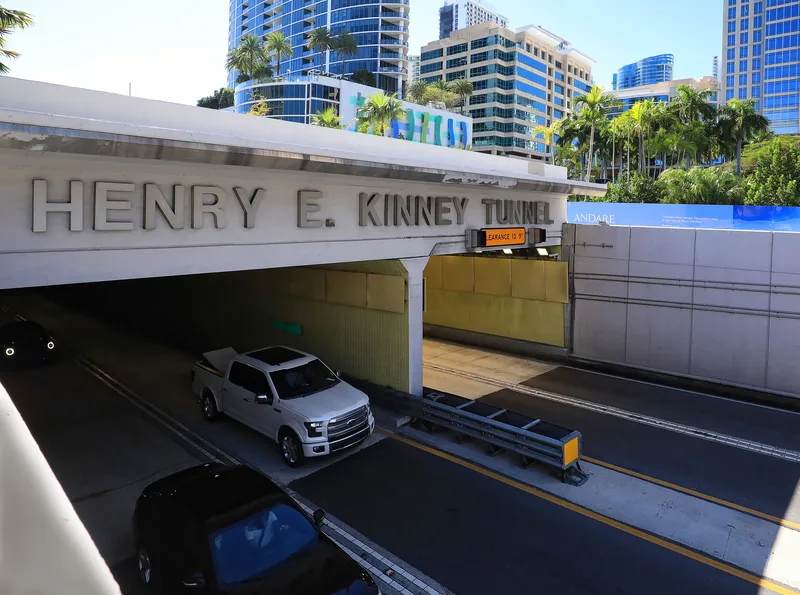
Kapsch TrafficCom has completed major projects involving tunnels in Florida and Brazil - and been awarded a new one in Hawaii.
Led by Florida Department of Transportation, the company has finished the Henry E. Kinney Tunnel rehabilitation project in downtown Fort Lauderdale, which also involved the installation of ITS along SR5/US-1 and the creation of a new pedestrian plaza.
The three-mile tunnel features a Scada (Supervisory Control and Data Acquisition) system that incorporates multiple systems for tunnel safety, traffic management and core elements such as lighting and air conditioning, as well as providing real-time data, automated alerts and remote system controls.
This allows transportation authorities to detect and respond to incidents quickly, ensuring minimal disruption plus greater safety and efficiency.
"The Henry E. Kinney Tunnel project is a shining example of how we can blend safety, mobility, efficiency and community enhancement. It represents a commitment to creating spaces where people can connect and thrive,” says Kapsch TrafficCom North America president JB Kendrick.
Florianópolis ring road
Meanwhile, in Brazil, down the Atlantic coast from Sao Paulo and Rio de Janeiro, Kapsch implemented its tunnel management system for the new greater Florianópolis ring road.
Ramiro Virreira, the company's new executive vice president Latin America, called it "one of the main urban road complexes in Brazil in recent years".
Managed by the Autopista Litoral Sul, a local concessioner owned by Arteris, the 50km greater Florianópolis ring road includes four pairs of tunnels, each around 1km long, with double lanes.
It aims to divert heavy traffic from the BR-101 highway that runs along Florianópolis and the municipalities close to the Santa Catarina capital.
Kapsch also supplied, installed, configured and put into operation all the ITS lighting and electromechanical equipment and subsystems, such as CCTV, fire detection, variable message signage and lane markers, emergency telephony, ventilation and environmental sensing.
"Our system integrates the management of all the equipment and subsystems in the four tunnels, for an integrated, automated and proactive operation, which helps operators guarantee safety, traffic flow and the satisfaction of road users," says David Niño, ITS systems engineering manager at Kapsch TrafficCom.
"Worldwide, almost 200 km of tunnels and more than 25,000 km of roads are monitored with our solutions for 24 hours a day, seven days a week."
Tetsuo Harano Tunnel
Meanwhile, the company has been awarded a $1.4m contract to upgrade the Dynac-based advanced traffic management software (ATMS) system in the Tetsuo Harano Tunnel and on the H3 Freeway in Oahu, Hawaii.
The tunnel links the Pearl Harbor Joint Base and Marine Corps Base Hawaii at Kaneohe.
The project involves a significant upgrade of the existing ATMS system, integrating both ITS and Scada functionalities through the Kapsch Dynac platform.
"Our team is dedicated to enhancing the performance, reliability, and scalability of Hawaii's vital thoroughfares through this ATMS upgrade," says Kendrick.
The project is expected to be completed by 30 September this year, and the upgrade includes managing critical message signs, controllers and other essential systems for traffic flow.
Kapsch will also provide comprehensive training for local system operators, to ensure a smooth transition.







